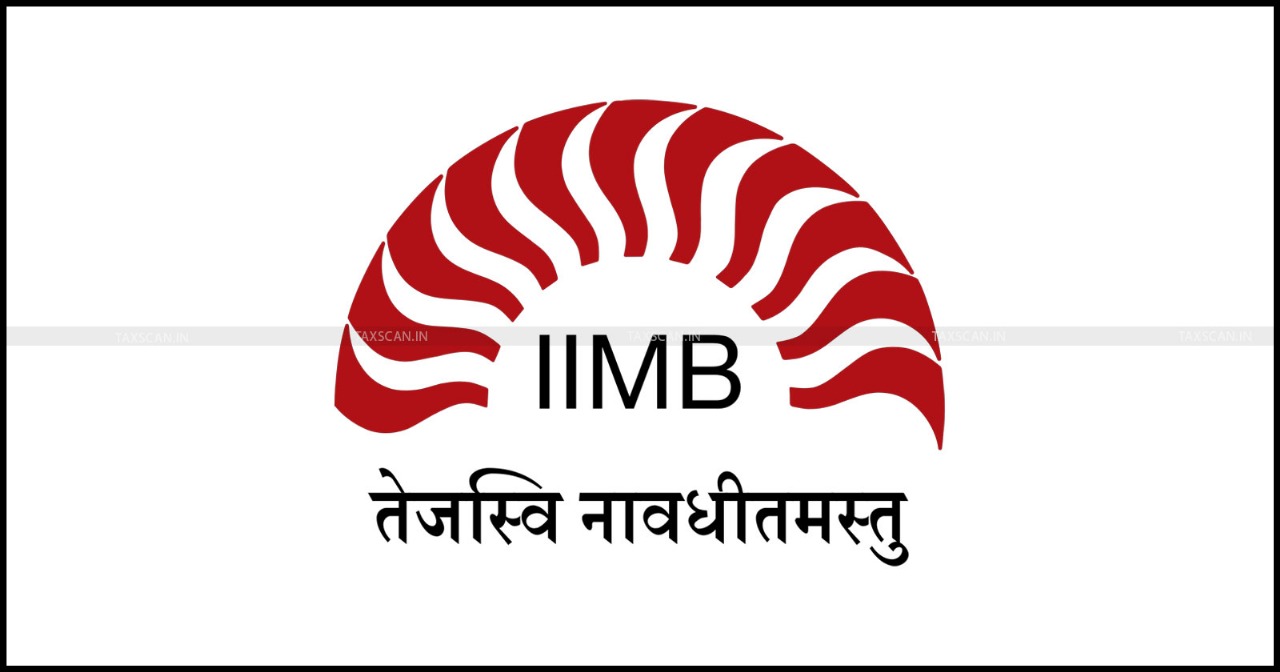IIM Bangalore Conducts Research Study on ‘Behavioural impact of Insolvency and Bankruptcy Code’: Key Findings [Read Order]
A 4-member team from the Bangalore chapter had conducted the study on the far reaching consequences of the IBC

IIM Bangalore – IIM Bangalore Conducts Research Study – Research Study – taxscan
IIM Bangalore – IIM Bangalore Conducts Research Study – Research Study – taxscan
A research team from the Bangalore chapter of the Indian Institute of Management (IIM-B), in collaboration with the Insolvency and Bankruptcy Board of India (IBBI) conducted a comprehensive research study evaluating on the subject “behavioural impact of the Insolvency and Bankruptcy Code (IBC)”. The study is formulated on the basis of the functioning of the IBC and its implications since its promulgation in 2016.
A team of 4 IIM Bangalore researchers, namely, Jayadev M, Abhinav Anand, Aishwarya Krishna, and Srijith Mohanan are the study team behind the project.
Resolution Professional can only File Application for Avoidance of Preferential Transactions u/s 43 of IBC: NCLAT Read More
The study is based on rich datasets comprising Corporate Insolvency Resolution Proceedings (CIRPs) from IBBI, firm-level financials from the Prowess database maintained by the Centre for Monitoring Indian Economy (CMIE), and Non-Performing Asset (NPA) related data RETRIEVED from the Reserve Bank of India - all during the period spanning from 2010 to 2024.
A key focus area of the study was to determine whether the enactment of IBC did in fact, lead to tangible behavioural shifts among borrowers and lenders.
Your ultimate guide for mastering TDS provisions - Click here
An important finding made by the team is that the IBC has become a catalyst bringing forth noticeable improvement in credit discipline. Borrowers have shown greater adherence to repayment schedules, evidenced by a sharp reduction in overdue accounts.
IBBI issues Guidelines for Insolvency Professionals to Act as Interim Resolution Professionals, Liquidators and Bankruptcy Trustees Read More
Further, the average number of days a loan remained in the 'Overdue' category has plummeted from a range of 248–344 days to a greatly reduced span of 30–87 days. The rate of transition from 'Overdue' to 'Normal' loan accounts has also steadily increased since 2018, indicative of heightened financial discipline and lender vigilance among entities.
Another key takeaway is the notable 3% drop in interest rates for distressed firms to borrow money, resultantly from deployment of the IBC. The rate drop is also reflective of stronger investor confidence and improved credit conditions.
IBBI Notifies Launch of Revised forms for CIRP: Existing 9 forms Consolidated to 5 Simplified Forms – Find Forms Here! Read More
Concludingly, the study affirms that the IBC has achieved much more than just procedural reforms. The IBC is stated to have driven structural changes in the lending ecosystem and borrower conduct, building a culture of discipline, accountability, and risk identification and responsiveness.
The full Research study on ‘Behavioural impact of Insolvency and Bankruptcy Code’ conducted by IIM Bangalore has been attached to this story.
To Read the full text of the Order CLICK HERE
Support our journalism by subscribing to Taxscan premium. Follow us on Telegram for quick updates


